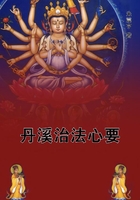§10.Now this distinction between creation and imitation, as propounded and applied by M.Tarde, is doubtless open to serious objections.The psychology of imitation is shallow, for under this single term is covered what are in reality many different actions, while the whole conception of imitation as a process is too mechanical.To some of these defects we shall refer presently.But though, regarded as an explanation of the processes of human progress, the antithesis of creation and imitation does not satisfy, it furnishes an exceedingly useful starting point towards a psychological analysis of economic processes.For in the evolution of industry it is quite evident that improvements do come about in this manner.A comparatively small number of original or curious minds invent new uses or new ways of doing things that are better than the old, or they recognise the value of new ideas which others failed to recognise, and they have the energy and enterprise to put the new ideas into operation.Many of the inventions are not good enough or big enough; only by a considerable number of little increments of novelty will a new machine, or a new process, emerge into economic vitality, or, in business language, become profitable.But where an invention or improvement has once emerged, Station multiplies it and it passes into general use.6A comparatively small number of creative or inventive minds thus undoubtedly play an exceedingly important part in the development of industry.The brief acts of thinking of a Watt, a Stevenson, a Siemens or an Edison, appear to be incomparably more productive in effect than the routine life-toil of the many thousands of workers who simply repeat hour by hour, day by day, year by year, some simple single process they have learned.It is true that invention is too narrow a term properly to express the distinction we are examining between that work which expresses the creative energy of man and that which is essentially imitative.For if a successful invention furnishes machinery or methods which thus multiply the productivity of human labour, the skilful organisation and administration of a business, the work done by the employer, has the same sort of effect.An able employer who directs his business with knowledge and foresight, gathering together just the right men, materials and machinery, producing the right goods at the right time, and marketing them properly, seems by his personal ability greatly to enlarge the valuable output of the entire business.In a big business he seems to be as productive as a thousand men.
§11.So a broad distinction is built up between Ability and common Labour, the creative and the merely imitative work of man.From this distinction has been drawn an ingenious defence of the current inequalities in distribution of wealth.Since all the progress of modern industry is really attributable to the ability and enterprise of a small group of inventing, organising and enterprising people, common labour being in itself no more skilful, no more productive than before, there can, it is maintained, be neither justice nor reason in the claims of labour to a larger share of that huge increase of wealth due to the ability of the few.
I do not propose just now to examine the validity of this contention.
What criticism I have to offer will emerge in the course of my closer examination of the nature of industrial work.At present I will only ask readers to observe that the doctrine assumes that payment for industrial services must or ought to be determined by the productivity of those services, not by their 'cost'.
Now, our immediate enquiry, we must remember, is into human costs.
And the distinction between creative and imitative work is particularly instructive in its bearing upon human costs.For if we grade the various sorts of human effort that contribute to the production of wealth according to the amount of creative and imitative character they seem to possess, some valuable light will be thrown upon the distribution of human costs among the various classes of producers.
Leaving out of consideration Land, which, as a factor in production, involves no output of human effort, we shall find that the provision and application of all the other factors, ability, capital and labour, involve some human effort both of a creative and an imitative type and contain some elements of 'cost'.
For the purpose of this analysis I propose to classify productive activities under the following heads: Art, Invention, Professional Service, Organisation, Management, Labour, Saving.The warranty for this classification will emerge in the course of the analysis.
NOTES:
1
As a matter of fact Mr.Flux assigns to savings a slightly higher figure and proportion of income than that taken here.But since for our purpose nothing depends upon the exactitude of the figures (and indeed Mr.Flux claims no such exactitude for his) it is more convenient for us to take the round figures of our text, though probably in both instances, i.e., aggregate income and savings, they are somewhat below the true figures for 1912.
2.There is no commoner stumbling-block to the beginner in the study of Political Economy than the fact that the income of a rich man, amounting to say £10,000, when paid away to persons who sell him goods or personal services, seems to count 'over again' as incomes of these persons.Why, they are disposed to ask, should the private secretary who receives £400out of this £10,000 be required to pay an income-tax upon a sum which (as they say) has already paid its share as part of the £10,000?
Nothing but a grasp of the fact that the secretary produces a 'real' income of 'services' corresponding to this £400 which he receives clears up the misunderstanding.
3.About half of this passes under the head of over-seas investments into the industrial systems of other nations, though the interest upon this foreign capital is available for consumption in this country.
4.Wealth and Welfare , Chap.I.
5.The exceedingly important question of the limits to the validity of such a quantitative calculus is discussed in the concluding chapter.
6.Tarde applies the same term 'imitation' to two different sorts of act.The business man or employer who recognises some improved machine or method and copies it is an imitator.Every improvement thus starting from a centre of discovery becomes diffused throughout a trade.
But the term 'imitation' is also applied to the regular work of the routine operator, who is constantly engaged in repeating some single process.
Now, regarded as psychological and as economic facts, these two imitations are distinct.
The former is the adoption of a discovery involving an act of recognition and of judgment -- not a purely automatic imitation -- at any rate until it has become a common form in the trade.The employer who copies or adopts an improvement performs a single act -- he incorporates this improvement in the technique of his mill or shop -- once for all.When, however, it is said of a machine-worker that his work is imitative, something different is meant.He is continually repeating himself, each act of repetition involving less consciousness in the adaptation of means to end.















